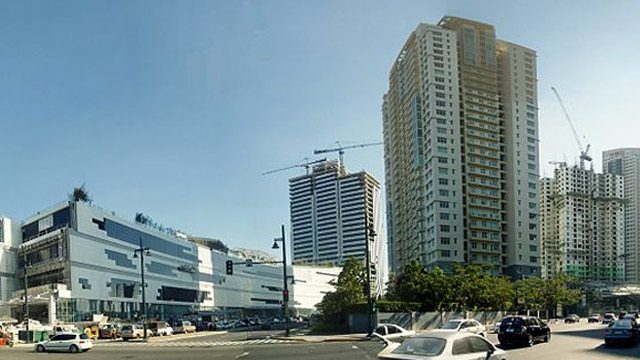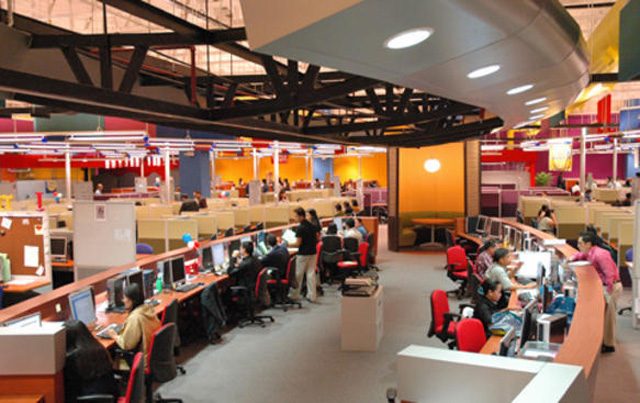SUMMARY
This is AI generated summarization, which may have errors. For context, always refer to the full article.

MANILA, Philippines – The Philippine real estate market continued its growth momentum through the first quarter of 2015, driven by a hot business process outsourcing (BPO) industry and the prospects of ASEAN (Association of Southeast Asian Nations) integration, said executives from global property consultancy giant CBRE.
“There is no let-up in growth of the property sector. Supply and demand across main sectors are all positive especially with the coming ASEAN integration,” said CBRE Philippines founder and chairman Rick Santos in a quarterly update held Wednesday, May 27.
This momentum can be seen through double-digit growth of the major property developers in the first quarter.
Ayala Land grew by 19.1%; Filinvest at 15%, Megaworld improved by 12.8%; and Robinsons Land shot up by 25%.
The growth is led by a strong office space segment, particularly in Metro Manila, which is expected to have 784,378 square meters (sqm) of additional office space this year, with the majority to be located in Fort Bonifacio, Taguig City.
“Office market trading remains brisk with pre-leasing commitments placed two or 3 years ahead of a new office building completing construction, CBRE director of corporate agency and brokerage John Corpus said.
Just half a year ago, he added, the average scenario was that a new office building would only be completely pre-leased 6 months before completion.
Average office rental rates have also been rising at P828.11 ($18.50) per sqm in Metro Manila, representing an increase of 1.45% from this time in 2014.

BPOs as growth driver
The main driver of the growth has been the BPO industry, with revenues up 18.7% from the previous year. CBRE expects BPO revenues to surpass those from Overseas Filipino Workers (OFWs) remittances within the next two to 3 years, given the average growth rate of the BPO industry over the past 5 years.
The industry is also contributing to the urbanization of the provinces, as BPOs fan out to Metro Manila’s fringes to avoid the capital’s rising rental rates and congestion.
“With the advent of the BPO industry, we now have an industry with over 6 million square feet a year of new office space take up, and that has created 3 times the demand for commercial space in Singapore and Tokyo,” Santos said.
Benefit from ASEAN integration
The BPO boom is also one of the primary reasons why CBRE believes that the local real estate industry stands to benefit more than most from the looming ASEAN integration.
“The Philippines is already running the back office (through BPOs) of some of the biggest Fortune 500 companies, not just in the US, but also the Europeans and Australians. With this experience, it would make sense that not only could we help run some of the back office, but also some of the front office of ASEAN countries as well,” Santos said.
The country also has some of the the cheapest real estate in ASEAN and the best English-speaking population and professionals, like lawyers, accountants, and engineers in the region, he added.
Filipinos also represent a significant percentage of middle management for multinationals across the region, given the globalization of English as the language of business and Mindanao’s links with the rest of the Muslim countries.

Risk diversification
Such factors present a very compelling mixture within ASEAN to open things up and also get more cross-border investment flow into the country, Santos explained.
One potential hindrance to this is the capital’s susceptibility to natural disasters, such as earthquakes, which was brought to the spotlight again following the events in Nepal.
CBRE directors, however, do not think that this will have a tangible effect on foreign investment due to the fact that risk diversification is one of the reasons, besides cheaper labor, that a multinational sets up abroad.
“Business can’t afford to shut down so what you’ll see is that a lot of multinational set up in different places in part to guard against the risk of a disaster temporarily shutting down a firm’s backroom operations, Santos said.
A firm setting up a BPO or satellite office, he explained, would likely set up a few satellite offices in multiple areas and countries in case of a natural or even man-made disaster affecting one center.
Morgan McGilvray, a CBRE director who represents Californian firms investing in the Philippines, added that the major developers responsible for the majority of the new buildings rising across Metro Manila’s business districts all adhere to a strict quality code.
“When these firms are looking at buildings here, they analyze them carefully in terms of disaster preparedness using their own teams, and so far none of the buildings that we’re seriously being considered have been passed over for this reason,” he said. – Rappler.com
US$1 = P44.70
Add a comment
How does this make you feel?
There are no comments yet. Add your comment to start the conversation.